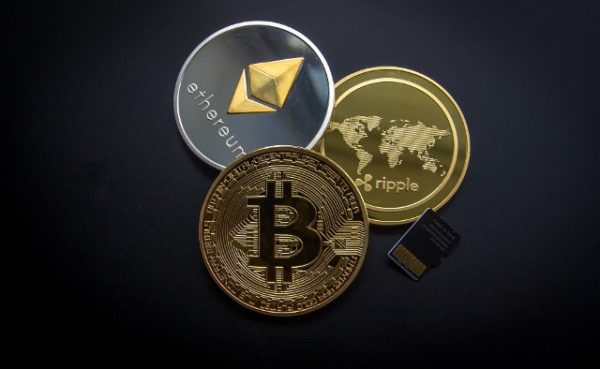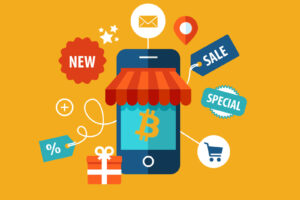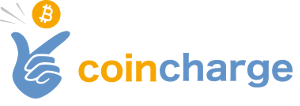Cryptocurrency as a payment method – Which cryptocurrency should you accept as a payment method?
There are thousands of different coins, tokens and cryptocurrencies. Which cryptocurrency to consider as a payment method was explained in the post “Which cryptocurrency should I accept in my store?“.
Which cryptocurrency is suitable as a means of payment depends on factors such as target group or business model. Likewise, whether the cryptocurrency as a means of payment in an online store or in a retail store was explained, which cryptocurrency is suitable as a method of payment in their own Internet store or retail store.
In the following article, the most important cryptocurrencies as a means of payment are presented in more detail. This is about specific characteristics and peculiarities. Which cryptocurrencies are particularly suitable for which business model or customer target group.

Cryptocurrency as a means of payment
Bitcoin (BTC)
In 2009, Bitcoin was developed as a peer-to-peer electronic cash system.
The idea behind this is a digital payment system (electronic cash system) with the help of which payments can be made directly among each other (peer-to-peer).
Critics of Bitcoin see some drawbacks to payment processing, and other cryptocurrencies have emerged that attempt to address these drawbacks.
Some Bitcoiners also no longer see Bitcoin as a means of payment (Medium of Exchange), but see it as a store of value (Store of Value) and refer to it as digital gold.
For adherents of the store of value approach, Bitcoin is an investment in the future and tend to hold (hodl) rather than spend Bitcoin.
But what is the criticism of Bitcoin as a means of payment?
Essentially, the high costs of a transaction and the long transaction duration are criticized.
With Bitcoin, transactions made are written to a block and confirmed every 10 minutes.
Due to the block cycle, the confirmation of a transaction can take from 10 minutes to several hours, depending on the amount of the transaction fee paid by the payer.
Accordingly, Bitcoin payments may be unsuitable for business models where immediate confirmation is required. As an example, the purchase of a coffee is described, where a shopkeeper does not want to wait 10 minutes to give out the goods.
There are solutions for such instant payments. This means that the goods can be handed over to the customer as soon as the transaction is recorded in the mempool.
However, in the case of high-value and expensive goods, it is advisable to wait for the corresponding confirmations in the blockchain.
Corresponding settings are made when configuring the payment process with the payment provider.
Another point of criticism is the high transaction fees for payers. These high fees have arisen because the place of the transaction in the next block is purchased as in an auction. If there is a high volume of transactions and space becomes scarce, the fees increase.
To solve this problem, it has been discussed to increase the block size and reduce or combine the size of individual transactions.
The supporters of the idea after increasing the size of the blocks implement this in new cryptocurrencies such as Bitcoin Cash or Bitcoin SV.
In Bitcoin, SegWit increased the size of the block and made optimizations to the transaction size. As a result, there has been a significant reduction in transaction fees and is currently at a level of a few cents per transaction.
Since every transaction on the blockchain (on-chain) incurs a transaction fee, Lightning was developed as a transaction solution that does not require transactions to be recorded on the blockchain (off-chain).
The original points of criticism could be solved technically and are therefore no obstacle to accept bitcoin payments.
Bitcoin in recent years has asserted itself as a robust, most reliable and most important payment method.
Bitcoin is the world’s most widespread digital currency and therefore Bitcoin has no alternative as a payment method and belongs in every store that offers cryptocurrencies to its customers.
At Coinpages you can find all German-speaking merchants that accept Bitcoin.
Bitcoin Lightning
Lightning is not another cryptocurrency, but a new feature for Bitcoin payments.
With the success of Bitcoin and the associated increase in Bitcoin transactions, three problems became apparent:
(1) Bitcoin can only process about 7 transactions per second due to block size limitations, (2) the cost of a transaction increases, and (3) confirming a transaction can take 10 minutes or longer.
These disadvantages are solved with the help of Lightning.
Bitcoin Lightning is the technology that makes Bitcoin payments faster, easier and cheaper than using Bitcoin directly.
In a Bitcoin payment, every single transaction is written to the blockchain (on-chain) and documented there for all the world to see for eternity.
When two parties make payments to each other, there is no need for each of these transactions to be recorded individually in the blockchain. These transactions are recorded separately (off-chain) from the actual blockchain. The intermediate transactions are documented as lightning transactions in a sidechain.
The opening and closing balances of Lightning transactions are recaptured and completed on the blockchain.
Through Lightning, payments can be confirmed in seconds and transaction fees are reduced to a few satoshi.
Thanks to Lightning, the original Bitcoin idea can be optimized.
Payments can be sent and received anonymously, almost for free, worldwide over the Internet.
Lightning payment processing is particularly suitable for paying for newspaper articles behind so-called paywalls.
When choosing the right cryptocurrency as a means of payment for products and services with a few cents to a few euros, who can not do without the payment of Lightning.
At Coinpages you can find all German-speaking merchants that accept Bitcoin Lightning.
Bitcoin Cash (BCH)
The Bitcoin Cash currency has been on the market since summer 2017. Due to a difference of opinion on the optimal block size, supporters of large blocks split off from Bitcoin.
Under the name Bitcoin Cash, supporters of Big Blocks gathered to be able to process more transactions in one block.
The pioneer Bitcoin “only” allows a maximum of seven purchases or sales per second. Bitcoin Cash is expected to enable eight times more transactions – in the same amount of time.
One of the key people behind Bitcoin Cash is Roger Ver. He is one of the first investors in various Bitcoin companies.
Bitcoin Cash sees itself as the only true Bitcoin and confuses numerous newcomers through the well-known website bitcoin.com.
Bitcoin Cash advertises that it is not just for speculation, but as a peer-to-peer electronic currency. Accordingly, it should be used, or in other words, it should be spent.
Bitcoin Cash is a fast way to pay, as transactions are credited almost instantly. Bitcoin Cash payments cost only a few cents, regardless of the amount and size.
For Bitcoin Cash, numerous payment providers offer payment processing for online stores. For brick-and-mortar stores, there are mobile apps that turn a smartphone into a POS terminal.
The spread of Bitcoin Cash among merchants in the DACH region is still very manageable.
Bitcoin Cash is from the technical characteristics a cryptocurrency suitable as a means of payment. A disadvantage is the low penetration in the DACH region. In Australia and the Pacific region, this cryptocurrency is more widely used as a means of payment.
At Coinpages you can find all German-speaking merchants that accept Bitcoin Cash.
Bitcoin SV (BSV)
Bitcoin SV is a fork created from Bitcoin Cash. The addition SV stands for Satoshi Vision and wants to show that one is committed to the original vision of Satoshi Nakamoto.
The original name was Bitcoin Cash SV, but now the common name is Bitcoin SV.
The inventor of Bitcoin Satoshi Vision is Craig Wright. He calls BitcoinSV the real Bitcoin and he himself is the mysterious Bitcoin inventor Satoshi Nakamoto.
With Bitcoin SV, unlike Bitcoin, the block size is not limited. This means that the number of transactions is not limited and thus the scaling problem should be solved.
Bitcoin SV offers the possibility of splitting payments. Thus, it can be said that when a payment is made, a partial amount is sent to another address. For example, commissions or fees can be paid into separate accounts.
For payment processing it is recommended to use the so-called Moneybutton. This application makes it very easy to integrate the payment function into your own store.
Mainly customers from Russia and Asia use Bitcoin SV for payment.
Accordingly, Bitcoin SV is hardly widespread among traders in the DACH region. Only one merchant at Coinpages accepts this cryptocurrency as a means of payment.
At Coinpages you can find all German-speaking merchants that accept Bitcoin SV.
Ethereum (ETH)
The second most important cryptocurrency by market capitalization and the main competitor of Bitcoin is Ether from Ethereum.
Created in 2013 by then 19-year-old Vitalik Buterin, the technology is also based on the blockchain, but is more powerful than Bitcoin’s and capable of executing smart contracts itself.
Ethereum thus has a different goal: it is less about paying with Ether and more about building entire organizations on an electronic, decentralized foundation.
Ethereum is considered less suitable for pure payment, yet numerous stores offer payment by Ether.
Ethereum’s technical advantages are not in payment processing. Nevertheless, the second most important cryptocurrency enjoys a wide distribution. Thanks to its wide distribution among potential customers, this cryptocurrency should be shortlisted as a means of payment.
At Coinpages you can find all German-speaking traders who accept Ethereum.
Ripple (XRP)
Ripple is a payment system for businesses, banks and payment institutions. For payment processing between individuals and businesses, Ripple’s solution is not suitable. Therefore, this cryptocurrency as a means of payment will not be considered in more detail here.
At Coinpages you can find all German-speaking traders who accept Ripple XRP.
I am text block. Click edit button to change this text. Lorem ipsum dolor sit amet, consectetur adipiscing elit. Ut elit tellus, luctus nec ullamcorper mattis, pulvinar dapibus leo.
Litecoin (LIT)
Litecoin was released on 07 October 2011 and along with Bitcoin one of the oldest cryptocurrencies.
Litecoin calls itself “The Cryptocurrency for payments” and a peer-to-peer internet currency that allows one to send payments to anyone in the world in real time and almost for free.
Technically, Litecoin is almost identical to Bitcoin. Litecoin is often referred to as Bitcoin’s little brother.
Just like Bitcoin, a maximum of 21 million Litecoins can be produced and is divided into 100,000 units.
The only technical difference is that a block is verified not every 10 minutes, but already every 2.5 minutes. Thus, a transaction can be confirmed more quickly.
Litecoin’s distinctive features are faster transaction times and improved storage efficiency.
Litecoin enjoys extensive trade and commercial support, as well as significant trading volume and liquidity. Thus, Litecoin is often used as a complement to Bitcoin.
At Coinpages you can find all German-speaking merchants that accept Litecoin.
Monero (XMR)
Monero (XMR) put a strong focus on privacy (anonymity) and decentralization and takes a different approach to scalability.
Transactions are confirmed after about 2 minutes.
The distinctive feature of Monero is its anonymity and privacy. To ensure anonymity, ring signatures and stealth addresses are used.
Stealth addresses mean that the addresses for incoming and outgoing payments are not publicly visible. This is possible only with the help of the private key, which the owner can publish or share.
The ring signature obscures and mixes the transactions, thus it is not possible to trace the money flows by analyzing the blockchain.
When paying with Monero, the payee cannot see what other payments you have made. Likewise, it is not possible to determine which credit balance one has.
Transactions on the Monero blockchain cannot be linked to individuals or identities.
Monero sees itself as a “private digital currency” and the money for a connected world. It’s fast, private and secure.
Monero is a popular cryptocurrency as a payment method for very tech-savvy customers who place a lot of emphasis on anonymity. Thus, more suitable for digital goods where a customer does not have to disclose his personal shipping address.
At Coinpages you can find all German-speaking merchants that accept Monero.
Dash
The term Dash stands for digital cash.
The most important characteristics of cash is its speed, its low transaction fees, and its anonymity in each individual payment transaction.
Dash offers the two main functions InstandSend and PrivateSend.
InstantSend is the fast, guaranteed payment within 1-4 seconds. This makes Dash perfect for retail and direct payments – it works like decentralized digital cash.
With the PrivateSend feature, Dash protects private payment transactions and corporate payments through decentralized shuffling. This mixes up transactions and thus disguises them, making the payment anonymous to third parties.
Both methods can optionally be used for particularly fast transactions (InstantSend) or anonymous transactions (PrivateSend).
Dash has raised its profile in the DACH region with an intensive public relations campaign. Numerous payment providers, Bitcoin vending machines and POS terminal solutions have integrated Dash as a payment method.
Dash is a cryptocurrency well suited as a means of payment.
At Coinpages you can find all German-speaking merchants that accept Dash.
Recommended cryptocurrency as a means of payment:
Merchants who want to offer cryptocurrencies other than Bitcoin as a means of payment should shortlist the following cryptocurrencies:






Leave a Reply
Your email is safe with us.